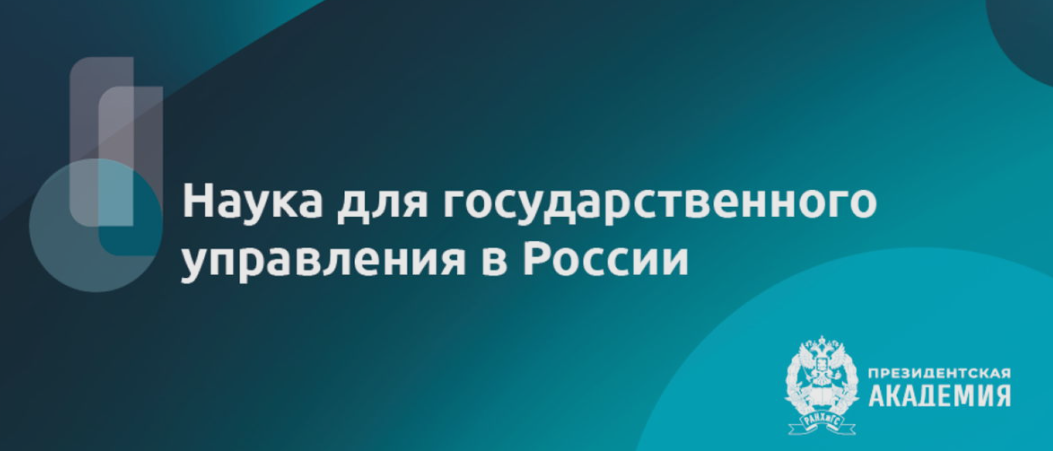Author's column
Priorities for development of science and technologies
Using genome-sequencing as an example there are analysed risks when choosing priorities for science and technologies development in Russia, based only on the analysis of trends in development of global biomedicine, but not factoring resource provision of the direction. It is demonstrated that in today's Russia there is a lack of sufficient numbers of competent doctors-genetics. The volume of core courses in medical universities (36 hours) in Russian Federation is inadequate to the intensity of the development of this direction and growth in numbers of genetic diseases. Modern domestic park of sequenators is represented by the equipment of early generation, using which prevents it to meet the world standards of research in the area of genome medicine. In practice the technology of genome sequencing is not widely used in the health care due to high costs of the diagnostics procedures. There is a conclusion drawn about unviability of choice as a priority direction of development, which doesn't have the personnel and instrumental provision as well as demand in the real sector of economy.
ECONOMICS OF THE INNOVATION
This article was conducted to identify the impact of innovative and scientific activities on competitiveness of fast growing Russian companies. The authors demonstrated that the competitiveness of domestic companies depends on their expenditures on R&D and technological innovation, the costs of staff training and other factors. Dataset for the study is based on the national ranking of fast-growing high-tech companies «TechUp 2013».
Potential of the personnel
Introduction of an effective contract exceeded the framework of a «concrete labor contract». It relates to a wide bredth of questions, such as how to increase salaries, at the cost of which resources, is it possible to cut renumeration within an effective contract and so on and so forth.
Consequently, this gave birth to a lot of myths and wrong thinking around different aspects of an effective contract. This article is dedicated to the analysis of these wrong perceptions (myths).
The article is devoted to interstate educational space EU, EEU: describe the mechanisms for their establishment and highlighted their main characteristics. Russia has become a party at different times of all of that interstate educational spaces. . Given the fact that the humanitarian cooperation in the field of education has economic consequences, measured in concrete terms, the article analyzed the capacity of pro-labor market of highly qualified personnel (labor mobility) and the educational market (academic mobility) countries participating in intergovernmental alliances. The authors concluded that the trend of the growth of regionalization of education, as evidenced, in particular, the growing regional academic and labor mobility. Moreover, if the foundations for the EU-governmental regional centers of education were Germany and France, for the EEU – Russia. For Russia, for the first time facing the challenge of working on the reduction-settlement, participation in international educational alliances can bring additional dividends if the solution to this problem will go the way of increasing labor migration and training of the participating countries of the EEU. In this case, Existing-exists the need for correction of the state policy in the field of attracting highly qualified you are, foreign experts and training issues for foreign countries.
Mainstream
It is demonstrated that the global food crisis of 2008–2009, increase of the world population and the growing demand for food have stipulated the aggravation of global competition on the market of agriculture land resources. Whilst not transforming the borders of own states, such countries as UK, USA, China and United Arab Emirates are becoming the new metropolies of the 21st century, using legal mechanisms for acquaring new lands. It has been noted that by 2012 Russia lost control of over 2,3% of surfaces of cultivated lands, while the number of deals for transfering rights to use the land resources to nonresidents of Russian Federation has seen a stable growth. Weak state control in the area of land rights transfer, which prompted an increase of cases of violation of landutilization regulations by foreign citizens, led to the increase of number of deals on renting farming acreages, which in turn created a risk for the food safety in Russia. It is recommended to conduct a full-scale cross-disciplinary scientific-research on the issues of acquisition of lands in Russian Federation as an essential prerequisite for preserving and effective utilization of country’s natural resources.
ACTUAL NORMATIVE DOCUMENTS AND EXPERT COMMENTS
ISSN 2949-4680 (Online)

































